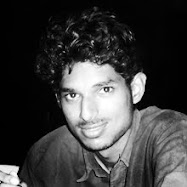In this part our agenda is to discuss about political technologies, political artifacts, organizations, and institutions, how internet is related to political process, presidential campaigns which includes networked collaboration and formal organizations, democratic implications etc.
The 2003-2004 presidential election paved the way to larger exploitation of internet.The Dean campaign lead to the emergence of two new terms ‘blogosphere’ and ‘netroots’. Many political activities were organized through blogging and other online media including wikis and social networking technologies. This lead to institutionalized backend practices.
The Work of Machines:
Machines were developed to repeat a particular process many times and reduce the labour work. They increase the efficiency of particular work compared to when done manually and thus were developed and implemented in a historical and social context. These machines are embedded in an institutional and organizational environment. And they help hold political relationships in place.
Technology has now lead to huge transformation such as use of Hollerith to political maps.
Political artifacts (such as Television, internet), organizations and institutions are very closely linked to each other.
What was the cause of rise of political consulting? The main point was organizational and institutional changes in the 1960s-1970s. There was a new set of technical practices relating to broadcast media, data, and narrowcasting. And the most influential cause was the emergence of a new class of independent political professionals.
What was the cause of rise of political consulting? The main point was organizational and institutional changes in the 1960s-1970s. There was a new set of technical practices relating to broadcast media, data, and narrowcasting. And the most influential cause was the emergence of a new class of independent political professionals.
There were many political websites created during the elections Eg:
The political web during 1996-2002 mostly highlighted campaigns. They used the Web as a broadcast medium. Brochurewares played a particular role in this background. During the 2000 elections many activities such as fund raising, publicizing banner Ads, E-mailing, searching for prospective volunteers were taken up which made internet one of main target for political parties. Theories of democratic practice include : Ideal was deliberative democracy, disintermediation and diversity, concerns over personalization and fragmentation.
The 2003-2004 presidential election paved the way to larger exploitation of internet.The Dean campaign lead to the emergence of two new terms ‘blogosphere’ and ‘netroots’. Many political activities were organized through blogging and other online media including wikis and social networking technologies. This lead to institutionalized backend practices.
Popular narrative is the celebration of peer networks that can make political communication go ‘viral’ in the absence of formal organizations. It follows like this:
Campaign volunteerà YouTubeàBlogosphereà Professional press.
A web page was created named MyBarackObama.com. Awareness among the public was created through e-mail and mobile technologies. And the databases of the voters and supporters were maintained. The figure below shows the integration of databases, internet, and field.
YES WE CAN
YES WE CAN
The peer networks during the Obama time introduced “Get FISA Right” (The Foreign Intelligence Surveillance Act (FISA) was originally passed in 1978 order to balance the legitimate need to spy on the nation's foreign enemies, with the Constitutional rights of her citizens, and especially to curb existing abuse). Facebook an Youtube were the alternative distribution system for campaign.
In conclusion, the new media and political practices need to consider technologies, organizations and institutions. The initial assessments should include the continuing importance of elites and formal organizations, institutionalized forms of participation, depth and breadth of citizen reach increased. Thus internet has been an implication for democracy.













